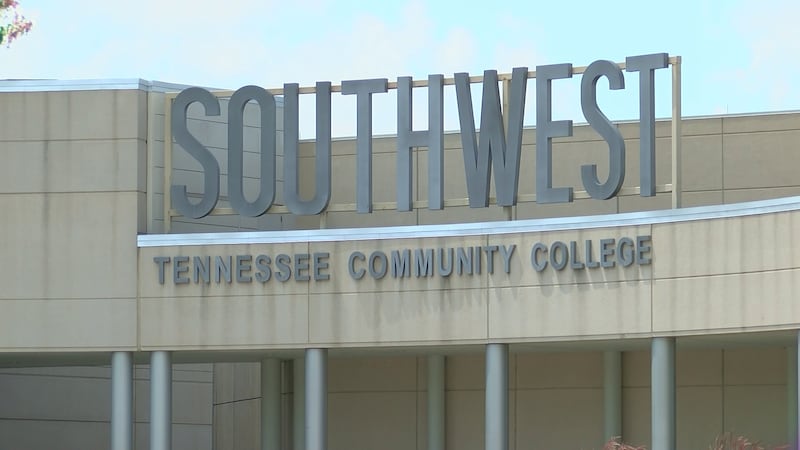Tennessee underfunded TSU by billions of dollars after Biden Administration study
U.S. Education and Agriculture secretaries sent letters to 16 governors showcasing the disparity in funding between land-grant HBCUs and non-HBCUs.
NASHVILLE, Tenn. (WSMV) - Tennessee State University is one of the many land grant institutions that is owed billions of dollars, according to federal leaders.
The U.S. Secretary of Education and the U.S. The Secretary of Agriculture sent letters to 16 governors across the nation showcasing the disparity in funding between land-grant Historically Black Colleges and Universities in comparison to their non-HBCU land-grant peers.
“At the end of the day it means what’s right for TSU and that means doing what’s right for our students,” said TSU President Dr. Glenda Glover.
Glover said she’s glad to know the federal agencies are taking steps to help try to repay land grant institutions. The report said money is owed to more than a dozen HBCUs across the nation.
“It means a lot to know that someone has taken a look at this and has said, ‘Here’s your portion TSU, here’s your portion A&T, here’s your portion FAMU,’” said Glover.
The letter cites available data from the National Center for Education Statistics (NCES) Integrated Postsecondary Education Survey (IPEDS) which ranges from 1987 to 2020. The new release said it calculated the amount that these institutions would have received if their state funding per student were equal to the 1862 institutions.
“Unequitable appropriated funding of the 1890 institutions in the states ranges from $172 million to $2.1 billion, causing severe financial gaps. In the last 30 years alone, these funds could have supported vital and much-needed infrastructure and student services and would have better positioned the recipient universities to compete for grants to increase educational opportunity for students,” cites the USDA press release.
“Unacceptable funding inequities have forced many of our nation’s distinguished Historically Black Colleges and Universities to operate with inadequate resources and delay critical investments in everything from campus infrastructure to research and development to student support services,” said U.S. Secretary of Education Miguel Cardona. “I am continually inspired by all that HBCUs have achieved despite having to punch above their weight.”
“We could have had the infrastructure, the housing, the scholarship dollars that we need, the academics, new academic programs. New programs are what higher education is all about. You want to meet the needs of a competitive public,” said Glover.
Related coverage
Last fall, the university reached record enrollment but couldn’t house all of the students. Then the state’s comptroller’s office put out a report about the university mishandling admissions, housing, and scholarships.
“We could have 3,300 students every year if we had the housing for them. The state has the $2.1 billion dollars that belongs to TSU and TSU gets blamed for having too many students and not enough residence halls because we didn’t have enough money to build the residence halls,” Glover said.
The $2.1 billion that federal leaders said TSU is owed is more than the $544 million that a state joint land grant committee said is due to the university.
State Rep. Harold Love Jr., D-Nashville, who worked on the state’s joint land grant committee and is an alumnus of the university, said he’s hopeful the money will be given to the school.
“We have been able to identify those pockets where improvements could have been made funding Tennessee State. That gives me hope,” said Love.
State leaders have already approved $250 million for the university’s infrastructure. Tennessee Governor Bill Lee said he remains committed to supporting the success of TSU.
So far, Lee has worked with the Tennessee General Assembly to deliver a total of $532 million dollars to support the university.
“For TSU, not having this level of funding means that our students are not getting what they need financially. We make do on a shoestring budget and make sure we produce great marketable competitive students,” said Glover.
Glover plans to meet the Secretary of Agriculture and the Secretary of Education to see how they calculated that number which she said will be helpful to her as she meets with the state legislature.
Copyright 2023 WSMV. All rights reserved.








